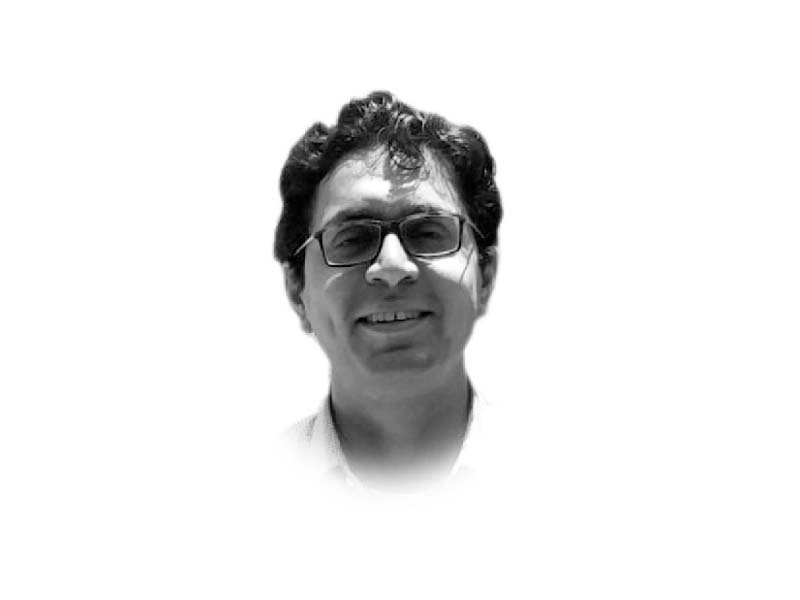
Asim landed in the capital city at one of its most prized universities, after his intermediate exams. As a bubbling, energetic young man, he was confident to excel academically. In his credulous, but ultimately erroneous notions he was highly expectant. This was not being illogical: similar lofty goals in previous academic steps had materialised. But maybe it happened when the competition was local. At the higher education level, his (subconscious) perceptions were shaken when most of the competencies he was relying upon became almost irrelevant. Not just him; his own peers, in this cauldron of a university with outstanding ethnic fusion, had encountered a variety of assessment systems and teaching methodologies which were often poles apart.
This was the beginning of a steep slump; a descent of a stellar student who in no time became a back bencher, pressured and eventually drowned by his own burden of dreams and social and family expectations. The accompanying bruises to his self-esteem shattered his confidence.
Asim didn’t deserve this. Neither was this fate propitious for a nation in great need of his ‘potential talents’. Unfortunately, there are hundreds of thousands of Asims. Broken promises and missed opportunities.
As citizens of this treasured country, we love Pakistan and want to contribute. Yet controversies are abundant, even around essential basics. On the educational policy front, the idea of a Single National Curriculum (SNC) presents a somewhat similar canvas. One wonders why this nation fails Asims. And maybe, part of the answer is the absence of one cardinal ingredient: a robust, effective and harmonised national educational framework which ought to have superior content and assessments, while catering to local needs and is yet synthesised just-enough to create a sense that you are in the same train, with aligned trajectories, and not in trollies with dissimilar directions.
Education is the most powerful tool for personal, professional, and societal uplifting. Not just any education, but high quality, relevant education. Because, only then the noble claims around it can be materialised. Such an education, especially in the globalised, technology-driven world we live in, must be a sound vehicle not just for delivering academic skills, but also for fostering attitudes around internationally acclaimed, and even heretofore, Islam’s radiant principles of equality, justice, empathy.
This can be achieved by weaving a fundamental framework of education, agreed and followed upon. Such a framework, or as we call it ‘curriculum’ in education jargon, should be focused and should be a transformative tool for improving economic prosperity, health, mutual co-existence, gender equality and women rights. Developing countries like ours, along with monumental other challenges, especially poor governance additionally face tasks ranging from improving financial literacy to digital learning, to issues of international equivalence for our degrees and qualifications.
Such a curriculum must be robust, internationally competitive, suitable to local needs and well-coordinated. The SNC, at works at the Federal Ministry of Education, is a paramount effort in this direction. Some of its key features must be reviewed as a more prudent approach to evaluate any policy intervention. While we can discuss the intentions and possible misuse of the actual thing, that must not be the first stage.
The vision behind the SNC is to extend, for every student, regardless of their lineage, “fair and equal opportunity to receive high quality education”, and ensuring “minimum educational standards” for each grade and schooling systems, ranging from elite-schools to madrassahs. The SNC provides for common competencies, a robust assessment mechanism and teaching standards. It aims to promote “social cohesion and national integration”, alleviate “disparities in education content across multiple streams… provide opportunities for upward social mobility, equity in education, holistic development” aligned with international trends and local aspirations.
Furthermore, the SNC focuses on pathways for making Pakistani students internationally competitive. It integrates our international obligations, like SDG 4. The SNC is focused on strengthening national values, citizenship, and propagates ideals of democracy, human dignity and multicultural coexistence. Even physical education, sports, and experiential-learning techniques have been opted to create dynamic a future human resource for the national economy and polity.
The focus on developing soft skills — like communication, collaboration, and analytical thinking — is an amazing new shift from previous bookish attempts. This one provides for approaches to permute these rich ideals into simple implementable versions, step-by-step and with a logical flow.
Holistically, it builds upon integration of economically-sound skillsets, impart nation-building ideals, and foster worthy attitudes among individuals.
Provinces, and even districts, should be able to include elements of unique histories, cultures, values and aspirations. There is no bar on that; no insular blockades against innovative, localised or entrepreneurial propositions have been placed. These remain provincial prerogatives and have been given due respect under the SNC framework. One eminent, informed, commentary on the SNC says: “Grades 4/5 curriculum of Social Studies covers ancient civilsations, constitutionalism, and cultural diversity including festivals of minorities, interfaith harmony, citizenship and so on.”
Debates on the SNC should not obfuscate the basics. It must bring uniformity in skills and knowledge for students across Pakistan and promote national harmony and equity.
A non-partisan review of the SNC and related subject-matters reveals our awakening to international challenges, holistic approach, cutting-edge capabilities, and positive attitudes. It needs support to demonstrate its results. Improvements can certainly be made and should be in a phased manner.
We should let Asims live and rise.
Published in The Express Tribune, August 22nd, 2020.
Like Opinion & Editorial on Facebook, follow @ETOpEd on Twitter to receive all updates on all our daily pieces.

1724760612-0/Untitled-design-(12)1724760612-0-405x300.webp)











COMMENTS
Comments are moderated and generally will be posted if they are on-topic and not abusive.
For more information, please see our Comments FAQ